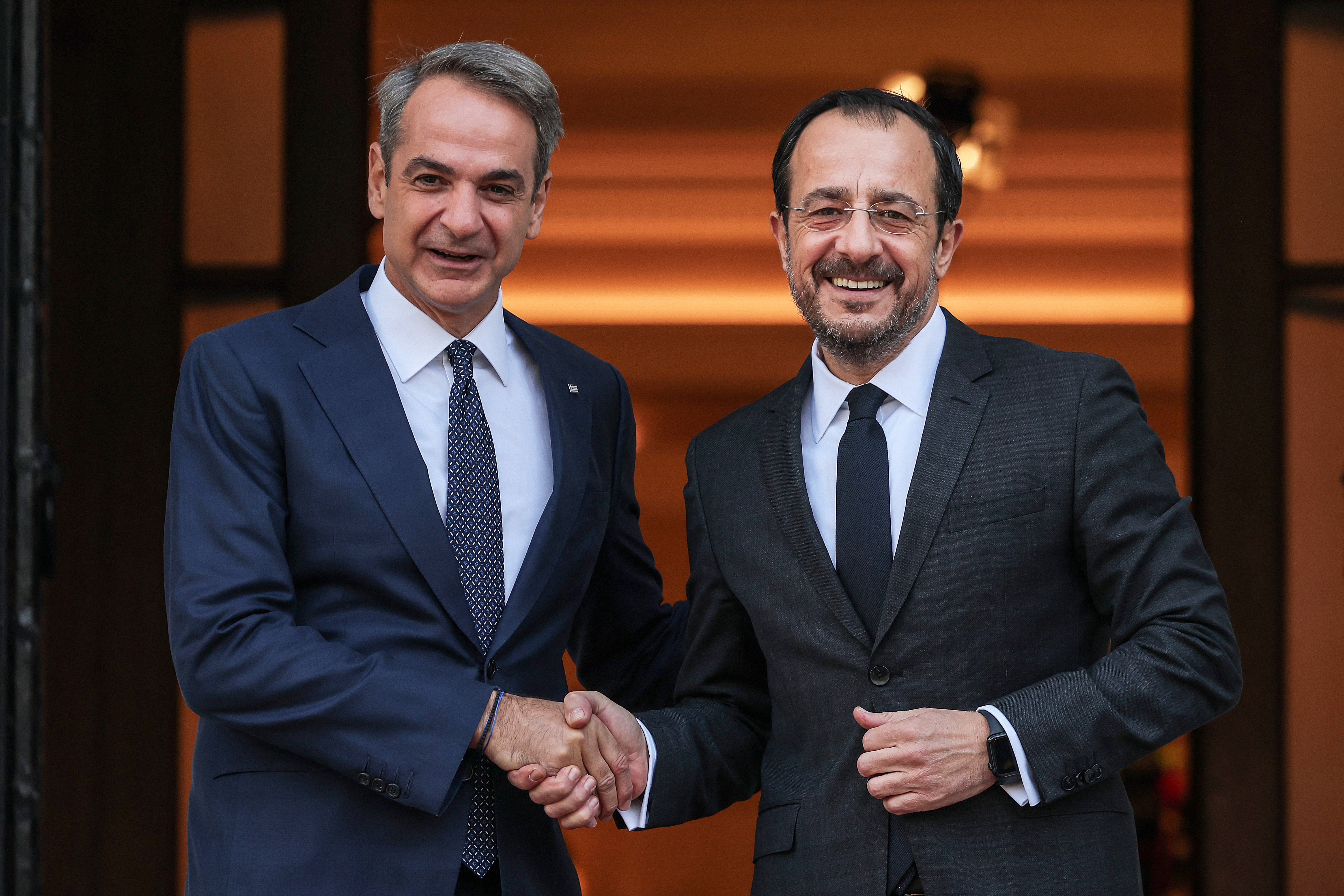There was another twist to the saga of the Great Sea Interconnector (GSI) on Wednesday at the third intergovernmental summit between Cyprus and Greece in Athens, which, apart from the obligatory platitudes about “essential actions, tangible economic benefits, the geopolitical footprint” also produced a decision. Prime Minister Kyriakos Mitsotakis and President Nikos Christodoulides agreed to “update the economic and technical parameters.”
This also sounded like a platitude, even though Mitsotakis explained that the updating of the studies would “strengthen” the project by paving the way for the “entry of new, strong investors which is to the benefit of all of us.” Christodoulides, stuck to the platitudes, declaring that the two countries were “moving forward in full coordination in expanding our mutual and regional energy cooperation and interconnectivity.”
Are the two governments finally on the same wavelength regarding GSI or does the disagreement that threatened relations between the two countries persist? It was only a month ago that Christodoulides accused the project promoter Admie – Greece’s independent transmission system operator – of blackmailing the government and defiantly declaring that Cyprus could not be blackmailed. It was an outrageous accusation which drew an immediate response from Greece’s energy minister, Stavros Papastavrou, who explained that the Greek state had a 51 per cent stake in Admie and the Greek state was not in the business of blackmailing anybody.
This was the culmination of Cyprus’ appalling behaviour in relation to GSI. Before that, Finance Minister Makis Keravnos was publicly stating that Cyprus should not pay the €25 million instalment that was due this year because the project was not viable. The amount is the first instalment of the €125m each country’s government has agreed to pay over the next five years so that Admie has some working capital while the project was being prepared. Cyprus has made no payment yet, showing utter disregard for the agreement, it signed, and making out that this was an acceptable way to behave.
The frustration of Admie’s top management and Greece’s government with Cyprus is understandable, while nobody knows whether the “update” announced on Wednesday is an actual way forward. What if the updated study of the economic and technical parameters is unclear about the project’s prospects and is used by the GSI detractors in Cyprus to demand that the government to pulls out? What would happen then and how would Christodoulides, who is inclined to bow to public pressure, manage the fallout?
Nobody knows what the Cyprus government will eventually decide. The “update of the economic and technical parameters,” which looks like another concession of Athens to Nicosia, will bring some calm for a few months but it may just postpone the collapse of the project that many in Cyprus, including members of the government, seem to want.






Click here to change your cookie preferences